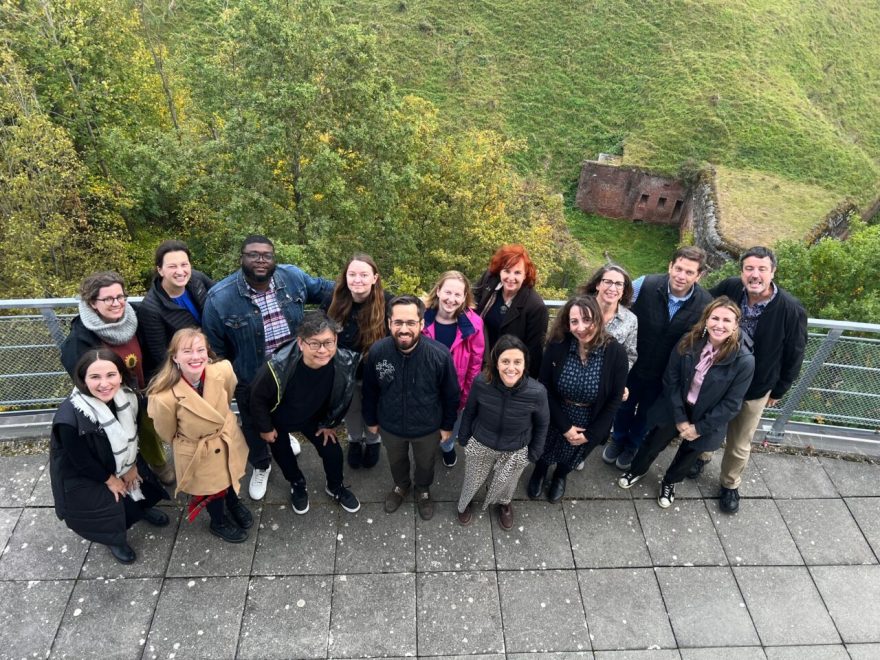
Center for Global Education Executive Director Takeo Suzuki (front row, third from left) was among a group of higher education professionals selected to attend the Baden-Württemberg Seminar in Ulm, Germany.
Earning a college degree should be seen as more than just a student’s entryway to a career, according to University of Tennessee at Chattanooga Center for Global Education Executive Director Takeo Suzuki.
It also should be an entryway into being a vital part of a community.
“We talk more about individual needs, but I think it’s high time for us to make students involved much, much deeper with the community needs, with the meaning of: Why they’re doing this? Not only for their sake but for the future of the city and maybe the country,” he said.
Suzuki recently saw firsthand the importance of the connection between college and community during a trip to Germany for the Baden-Württemberg Seminar. The four-day conference at the Heidelberg Center for American Studies attracted representatives from colleges and universities across the United States.
Along with meeting educators and representatives from business and civic organizations, he also met several students during the conference.
He said that attending college is more than just earning a diploma in Germany.
“Going to a university is a highly recognized action for the young people there,” he said. “They feel special; they feel obligated to make a contribution to the future society.”
While facing many of the same problems as the U.S., such as a lack of K-12 teachers, the German education system significantly differs from America. When a child is about 12 years old, he or she must choose between a vocational career or one that requires a degree from a research institution similar to UTC, Suzuki said. The choice determines the type of high school—known as intermediate schools in Germany—the student attends.

Dr. Takeo Suzuki
In the vocational education track, companies will pay a student to go to school for a semester, then work for a semester, then back to school for a semester in an ongoing rotation until the student graduates, Suzuki said.
“It’s an extended, professionally organized internship program for students who cannot afford to go to school or want to go to school but don’t know their future career at all,” he said. “There are 50,000 German companies sponsoring this program.”
City and business officials in the German city of Ulm expect a shortage of about 45,000 workers—both white- and blue-collar—over the next few years. Helping students with their college education is one way they’re trying to address the problem, Suzuki said
“The impression I had was that business leaders are embedded in supporting higher education from the financial side, from the academic side to pretty much everything,” he said.
During the COVID-19 pandemic, students worldwide were taught remotely via Zoom and other “non-interpersonal communication platform education processes,” Suzuki said. Returning to classroom instruction offers a unique opportunity, he said.
“I think it’s a really good time for us to start to talk at every school class about why this is helping the community and what part students may need to find for themselves,” he said.
“I felt as if the German students we met have an understanding of pursuing a meaning of life through education.”
The desperate need for teachers in Germany provides a boost to students’ desires in education, he said.
“I asked a teacher why this is happening and they said, ‘Well, everybody likes to learn much more because of the shortage. It’s easier for them to find a job.’
“However, because of the shortage, if they really want to get a better job than everybody else, they have to show uniqueness and leadership and understand that finding that shiny moment in themselves will help them grow eventually.”
